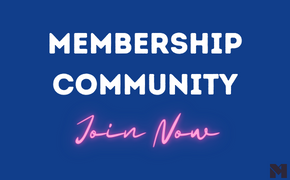This week I got very excited. I received a Fedex from Wiley at the University of Pittsburgh, sending me a hard copy of my article taking up several pages of their brilliant Leader to Leader magazine.
Now, I already knew the article was out online, but there really is something magical about seeing it in hard copy, especially when it comes to an exclusive publisher like Wiley. So the first thing I do is send a copy to my mum (yes I am still that kid!), and the second thing I do is tell you.
Why? It’s not so you can pat me on the back, that’s my mum’s job and she is top notch at it. It’s so you can recognise what I recognise – that the narrative around middle managers is changing for the better. Over the five years that we’ve been dedicated to this space, elite publishers like this have been very lukewarm about articles on middle management getting past the editorial board. Now they are hungry for it.
The narrative is shifting fast – and I’m delighted to see it. It’s not that I think all middle managers are great – they are not, and that’s why we define B-Suite Leaders as a breed apart. It’s because when they are great they play a vital, if intangible role in making business work.
Here’s the trending conversation around the world about middle managers this week:
If you’re an organisation determined to be faster, cheaper and better then you need two things: AI needs to pick up the low hanging fruit, and C-Suite leaders need to remain fully focused on crazy market forces.
Both of these business imperatives have suddenly fallen foul of the great flattening.
C-Suite leaders suffer when middle managers are cut
We already know that individual contributors feel the loss of decent middle managers, and always have done – Project Oxygen and Zappos discovered it, the recent KornFerry Workforce 2025 Global Insights report shows it – 37% of employees say that the lack of managers has left them feeling directionless.
But this is the new news – in countries where middle management ranks have been slashed, 72% of senior executives say they’re “stretched beyond their capabilities.” – compared to only 47% of senior executives feeling that way in countries where a great flattening hasn’t occurred.
The precedent is clear – don’t make a general delayering decision based on the assumption that ‘you can afford to let 20% of middle managers go’. Instead, be laser focused on the middle managers you can afford to let go, versus those you can’t. Current examples prove that your executive will get dragged into the day to day, and still fail to meet the needs of an increasingly disengaged workforce.
AI will never work without middle managers
The potential of AI to cut costs in the workforce relies almost exclusively on middle managers for success. Middle managers have been crucial to realising change for decades; in 2018 INSEAD proved that middle managers have a significant multiplier effect on the success or failure of change initiatives – something that was blatantly obvious to me during the most recent transformation of Australia Post. When middle managers are invested in a change, it succeeds. When they are not, it fails. AI is a massive change.
BearingPoint made it clear this month – ”organisations that invest in the development of middle managers are able to apply AI much more effectively,”
Why? Because middle managers know the work, know the people, have the trust to lead the conversation, and the authority to drive the adoption. No-one else can do it.
_____________________________________________________________________________________________________________________________________________________

Rebecca is Australia’s pre-eminent advocate for B-suite leadership – the expert in developing hi-impact B-Suite leadership at both a team and individual level.
Speak to Rebecca about:
-
-
-
-
-
-
-
-
-
-
-
- Individual and group coaching
- Team effectiveness and training
- People & Culture Advisory
-
-
-
-
-
-
-
-
-
-
You can reach her on [email protected]














